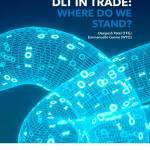Cryptocurrencies – What are they?

Contents
Cryptocurrencies are digital currencies that use ‘cryptography’, the process of changing information into code to make online transfers and purchases.
It’s been nearly 10 years since the first cryptocurrency, Bitcoin, was released and the market has since expanded dramatically.
Most cryptocurrencies are run on the blockchain – a decentralised, distributed system that allows transactions to be completed without any middlemen. Blockchain technology is now also being used in other application beyond cryptocurrencies, you can read more about that here.
As of March 2018, there were 1658 cryptocurrencies in operation. These cryptocurrencies have a total market capitalization of around $369 billion. At the forefront of the market are big players like Bitcoin, Ripple, and Ethereum.

Brief History of Cryptos
If your profit margins are 5% and a customer defaults on a debt worth $200,000, then you would have to create $4,000,000 in sales to make up for this loss. This can put any company out of business quite rapidly. Trade credit insurance can help to mitigate these losses, so the company can continue its operations.
It is important not only to get the losses covered, but to work with an efficient provider who can get losses covered quickly. Access to liquidity is imperative for the smooth functioning of any company.
When dealing with trade, trade credit insurance becomes very important. Companies go out of business all the time for a myriad of different reasons. And they never advertise the fact that they are having financial difficulties.
For this reason, taking out a policy with an insurance company that monitors the creditworthiness of buyers can enhance business resilience greatly. Trading on credit, backed by trade credit insurance, enables businesses to focus on what they do best.
Without this protection, credit risk is borne by the seller and they may have to rely on cash deals, limiting the ability of partners to work with them or more expensive instruments such as letters of credit.
Types of Cryptocurrencies
As of 2018, there are over a thousand cryptocurrencies on the market. Many of these have been designed to meet different needs and ‘bring something new to the table’. However, not all cryptocurrencies have been equally successful. The top 20 cryptocurrencies account for around 89% of the total market.
Below is a table of the top 5 cryptocurrencies and their market capitalization:
(accurate as of 01/01/2023)
| Cryptocurrency | Market Capitalization | Price per coin |
| Bitcoin | $322,121,416,062 | $16,720 |
| Ethereum | $148,830,086,292 | $1,216.08 |
| Tether | $66,253,773,398 | $0.99 |
| USD Coin | $44,724,944,909 | $0.99 |
| BNB | $39,374,018,625 | $246.13 |
Uses
Cryptocurrencies have a diverse range of uses at present, with many more on the horizon as cryptocurrencies become more mainstream. Some common uses are:
Fundraising
Cryptocurrencies can be used for fundraising on websites like Kickstarter. Due to the simplicity of tracking and obtaining money using cryptocurrencies, more and more start-ups are happy to accept them as a means of investment.
Travel
Some travel companies like cheapair.com have already begun accepting bitcoin as payment for air travel. As travel purchases are one of the most popular online purchases, it is expected that more companies will make the switch to accepting cryptocurrencies as payment in the future.
Education
Some universities now accept bitcoin as a form of payment for tuition fees. The payment method has been adopted in several countries, including Switzerland, Germany and Cyprus. This is expected to grow as cryptocurrencies become more popular.
Wealth management
Cryptocurrencies are frequently used in wealth management, with some companies like SwissBorg creating tokens specifically for investment solutions.
Use in Trade Finance
Cryptocurrencies are also potentially very useful in trade finance. Although we’ve seen limited cases of this so far, as the cryptocurrencies market grows, more investments and research is being made by banks and financial institutions to utilize cryptocurrencies in trade finance and the supply chain.
As cryptocurrencies run using blockchain, they have the potential to make trade finance processes more efficient. Blockchain can streamline trade finance processes by digitizing them and make payments faster and more efficient.
There are already a number of case studies we can look at to demonstrate this. Banks like Barclays and HSBC have successfully used blockchain for trade finance deals and others look set to follow. Certain cryptocurrencies like Ripple are making particular advancements in this arena.
For more information about the use of Blockchain in Trade finance, see TFG’s information page on Blockchain and Trade Finance.
Advantages and Disadvantages
Advantages
Accessibility:
Cryptocurrencies are accessible to almost anyone who’s interested, even those with little to no prior investing experience. It’s easy to invest in existing cryptocurrencies and get involved in the funding of new currencies online.
Efficiency:
Making payments using cryptocurrencies is usually a quick and simple process. It doesn’t require credit card details; only the wallet address of the recipient is needed to send a payment.
International trading capabilities:
Trading internationally using banks can often be a lengthy process carrying heavy fees. With cryptocurrencies, there are no transaction fees and the length of time it takes to send a payment is much quicker.
Security:
Cryptocurrencies are known for being a very secure method of payment. Unless you have been hacked, it is almost impossible for anyone but the wallet holder to move any of the funds.
Disadvantages
Not widely accepted:
Most cryptocurrencies are yet to be adopted by mainstream businesses. This means that the practical use of cryptocurrencies is limited. However, this is expected to change as the industry continues to grow.
Volatility:
Cryptocurrencies are still regarded as volatile as they are yet to be adopted on a mass scale and prices have been known to change rapidly over short periods. Because of this, some investors and businesses are hesitant to get involved in the market.
Loss:
Due to the anonymity that most cryptocurrencies offer, loss of coins is a serious issue. If you lose access to your wallet by forgetting your passwords or losing your devices, it can be extremely difficult or even impossible to gain access to the wallet again.
No refunds:
once a cryptocurrency payment has been completed, it can’t be reversed. There is no way to get a refund, other than to trust that the recipient will return the funds to you.
Interesting Facts
Here are 5 fun facts about cryptocurrencies:
- The identity of the Founder of the first cryptocurrency, Bitcoin, is still unknown. The founder operates under the alias ‘Satoshi Nakamoto’.
- Some countries, such as South Korea, are considering banning the use of Bitcoin. Thailand already banned the use of them back in 2013 but reversed this decision soon after.
- Cryptocurrencies are especially popular with young investors, who are interested in the potential for quick and easy gains.
- The FBI is on board with cryptocurrencies and owns one of the largest bitcoin wallets, with an estimated value of around $120 million
- The first cryptocurrency transaction was the purchase of two Papa John’s pizzas for 10,000 BTC. In today’s terms, those pizzas cost a whopping $180 million.
References:
https://www.fool.com/investing/2018/03/16/how-many-cryptocurrencies-are-there.aspx
Publishing Partners
- Blockchain & DLT Resources
- Cryptocurrency Resources
- All Topics
- Podcasts
- Videos
- Resources
- Conferences
















